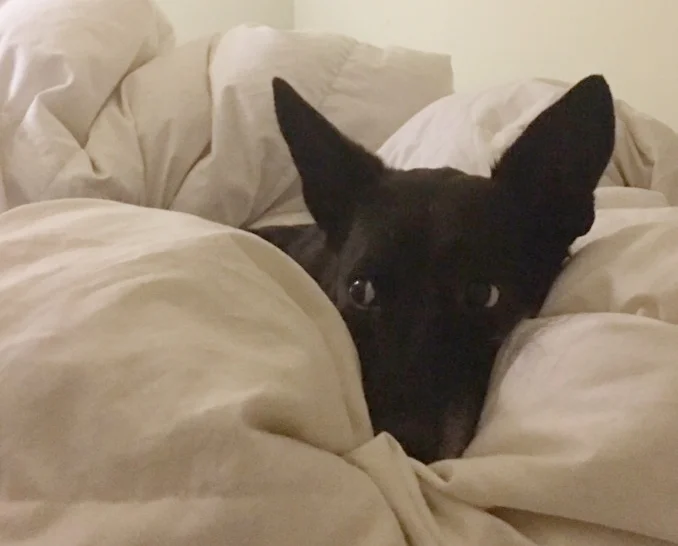A feature by Éric Chevillard
The coronavirus has embedded itself like one of those secondary characters that the novelist no longer knows what to do with, even though he had assigned him only a lowly or insignificant purpose. How to get rid of him? This miserable wretch has settled down right in the heart of the action. Now he’s calling the shots, dictating the destiny of all the protagonists: I won’t just have to live with him, I’ll have to treat him like the main character, the hero! Nothing will be left for anyone else. At the end of the day, the story will bear his name as its title.
A feature by Éric Chevillard
I thought my little joke about the Zorro masks, which opened this column three weeks ago, was original. No sooner was it published, however, than I began to receive numerous photocollages, drawings, and sketches showing all too clearly that the same idea had germinated simultaneously in multiple brains—as was the case with the invention of photography, and of the phonograph, and even of photosynthesis, which was apparently conceived at the very same moment by a tree fern in La Réunion and a poplar in Maine-et-Loire that had never met one another.
A feature by Éric Chevillard
My older daughter doesn’t like Jerusalem artichokes, her younger sister doesn’t like rutabagas, and just you try preparing a meal in such conditions! All in due measure, of course—except that we’ve lost all sense of measure: our compasses spin endlessly in a vacuum, our tape measures are the streamers of an undertaker delighted by so many mensurations. All out of due measure, then, our current situation calls to mind the great historical restrictions, the siege of Paris, periods of war and occupation.
A feature by Éric Chevillard
We’re still allowed to go out, briefly, for the necessary daily walking of our pets. Let us note that the dog calls “walking” what the human calls “defecating,” and that he requires the street, even the whole city, to deposit his waste—while for us, on the contrary, this rite, this duty, is normally our only daily experience of confinement, in the little room at the end of the hall. In short, this pressing necessity is an occasion for the dog to get out of the house for a spell, and a good reason for his master, on the contrary, to come home running. In both cases, you might say, we get to stretch our legs.
A feature by Éric Chevillard
Confinement’s strict discipline shows us who we really are. Here we are at last, beheld by our own four eyes. That’s right, four eyes, because at least two beings at once are incarnate in each of us. The first one is all nerves, pacing back and forth, biting his fingernails to the quick and then the bone, impatient and furious, while the other one philosophically lets his wise-old-sage beard grow (the metaphor works for comely young ladies too, age and gender meaning nothing anymore) and tries to find something positive in this radical experience.
A feature by Éric Chevillard
I call her Lachesis. It’s a pretty name, I feel, for a spider. For a few days now, in an effort to break up my isolation and not limit my affective interactions to the three members of my family secluded with me, I’ve been working on taming her. Her silk thread is the last link connecting me to the world.
A feature by Éric Chevillard
Now, the anxiety that comes with menace and peril doesn’t prevent us from also feeling that bitter yet very real pleasure of cancellation. Because everything that must be experienced, everything we have to make time for, these patiently constructed plans, all these prospects disturb us too. Simply because it’s coming, because it’s inescapable, because there’s no way to get past it without going through it, the smallest scheduled event vexes us like a dark omen. . .
A feature by Éric Chevillard
So yes, it’s inevitable, every writer working today is keeping a quarantine journal. It’s a required subject. It’s the only subject. Do not condemn us: it’s by writing that we develop our antibodies. The hippopotamus rolls in the mud to protect his delicate leather from ultraviolet rays. If he didn’t, he would turn pink and we would laugh at him. Nobody would confuse him with the rhinoceros anymore, and he likes being mistaken for that brute; it gives him courage. The writer has similar reflexes. He carries himself onto the page, and there he forges his weapons, his tools of resistance. . .
M. R. James has written that “Not long before the war…” makes for a proper sort of opening to a ghost story. The idea, I presume, being that wars are occurrences of sufficient gravity, not to say regularity, that they remain always an identifiable yet ambiguous point of reference. To begin in this way is to say, “My little tale took place some little time ago, before our little lives took on their current ugly contours.”
Yes, yes yes, it’s very charming, is Peter and the Wolf, I won’t deny it, a fine introduction to orchestral music for the young audience who must somehow be made to swallow that bizarre, tiresome manifestation of human genius, those fireworks of polished brass and varnished wood, that spectacle of austere, black-dressed personages waggling their mallets, their sticks, their bows, as if it weren’t enough for a man to know how to handle a shovel, a drill, a saw, a ladle, an oyster fork. Sergei Prokofiev believed—rightly, cleverly, underhandedly—that some manner of sop had to be thrown to those little sprites, who might very well whine and carry on without some naïve little tale to distract them from the stiff-necked, solemn, symphonic tedium.
Alyson Waters: But then where does the first sentence come from, if it doesn’t come from your imagination? I’m thinking, in particular, of some first sentences from your novels that are too long to be quoted in full but which are utterly delightful: “Boborokine was not a big man, though not preposterously small, he must have stood, amounted to, or measured a head shorter than me, judging from his uniform…” (Prehistoric Times) or “The thickest clouds are gray, the tallest, mightiest cities are gray, the elephant, the hippopotamus, all the pachyderms are gray; they can be seen from a much greater distance than the garish hummingbird or butterfly, and yet the prejudice persists that gray is the more minimal manifestation of visibility . . .” (On the Ceiling); or a far shorter sentence, the one that opens Dino Egger: “Finally, I’ve got one, and now we’re going to find out.”
Éric Chevillard: The beginning is always a feat of willpower. I’ve often had to deliberately set down—like an absurd premise, an indefensible principle—a first sentence so bizarre that it opened up a wholly unexplored space. At least then I could be sure I was the first to land on this shore, to tread on this snowy stretch. I remember very clearly the moment when I started my novel On the Hedgehog by writing these words: “It seems exactly like a naive and globular hedgehog, this animal, there, on my desk.” It was practically automatic writing. I didn’t yet have any specific aim. But the impetus was there. I will maintain that any other formulation could have served my purpose just as well. It’s a matter of surprising myself in order not to repeat those worn-out phrases that have not only been put to use already in literature, but also come to dictate our very existence. I believe that art in general and literature in particular offer us the chance to broaden the range of our awareness as well as our areas of experience, to leap from a moving train of thought as if to free ourselves from the specific conditions imposed upon us. So the first words count quite a bit; here the words really do give the orders. If a writer isn’t careful he will innocently formulate the words that already dictate the world, whereupon everything will start over as it always has and, as Beckett puts it at the beginning of Murphy, the sun will shine “on the nothing new.” A mysterious or extravagant first sentence must, on the contrary, be justified. A different world order must be invented in which it makes sense.
I began ejaculating when I was seven.
It came to me one morning, just like that. I started ejaculating feverishly all over my schoolbooks.
My parents disapproved. You’re not old enough to ejaculate. You’ll put an eye out.
So what. I continued ejaculating in secret.
I ejaculated, I ejaculated, I ejaculated, without fatigue, without boredom, without deviation, come hell or high water.
I held in my hand a magic wand. I ejaculated certain that I was creating marvelous things.
It was in my blood, to be sure. At the first free moment, did I play with marbles or chase girls? No. I did not watch television. I didn’t help my father in the garden. What did I do? I ejaculated.
At sixteen my ejaculations were strongly influenced by Rimbaud, but they weren’t very good now that I think about it...













